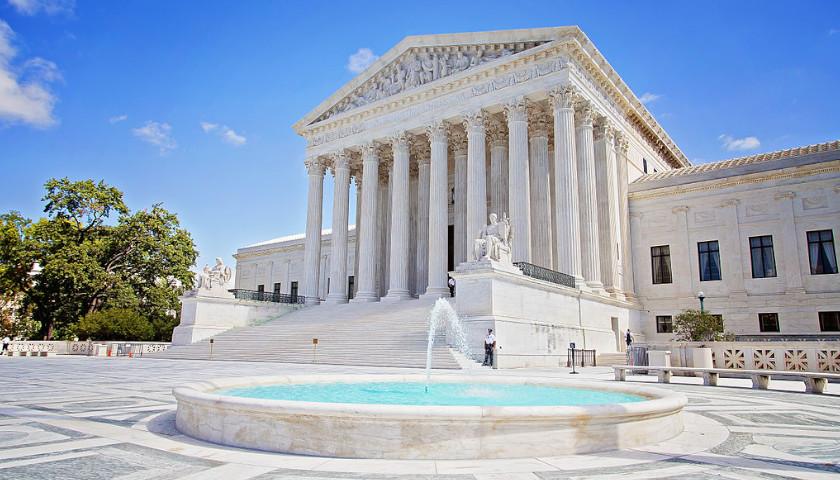Pennsylvania’s House of Representatives this week passed a bill supporters tout as protecting LGBTQ individuals from discrimination but which many expect to impact women’s sports, healthcare providers, and religious schools.
The bill passed 102-98, nearly along party lines, in the almost evenly divided House. Among Republicans, only State Representatives Aaron Kaufer (R-Luzerne) and Alec Ryncavage (R-Nanticoke) supported the bill, which advocates calling the “Fairness Act.” State Representative Frank Burns (D-Johnstown) cast the sole Democratic vote against the measure.
The federal government already prohibits employment discrimination based on gender identity or sexual orientation. State Representatives Malcolm Kenyatta (D-Philadelphia) and Jessica Benham sponsored the state legislation to apply nondiscrimination protections to those seeking housing, education, and other public accommodations.
In a floor dialogue, State Representative Dan Frankel (D-Pittsburgh) asked Kenyatta whether healthcare entities would be forced to provide “gender-affirming” care, men would gain admittance to women’s bathrooms, or biological males would get to compete in women’s sports. Kenyatta said no in each case. Bill backers dismissed objections that the legislation would lead to these outcomes.
“We still hear the same thing: It’s not the right time or it’s not the right vehicle,” House Majority Leader Matt Bradford said. “Today actually is the right time. Today we’re going to be on the right side of history.”
But State Representative Craig Williams (R-Chadds Ford), a former federal attorney who noted his daughter plays youth soccer, explained that the bill would impact women’s youth athletic programs. While the bill does not explicitly refer to the issue, it comprehensively amends the Pennsylvania Human Relations Act regarding nondiscrimination over gender identity and sexuality. Activities governed by the act include public accommodations, among them schools and scholastic sports facilities.
“It will apply to sports in our schools…,” he insisted. “This argument that I understand that the Pennsylvania Interscholastic Athletic Association will have the discretion to legislate or regulate, if you will, whether or not female sports may be played by other individuals is incorrect as a matter of law.”
State Representative John Lawrence observed that the legislation would also constrain the activities of religious institutions. The section of the bill defining an employer reads, “The term ‘employer’ with respect to discriminatory practices based on race, color, age, sex, sexual orientation, gender identity or expression, national origin or non-job related handicap or disability, includes religious, fraternal, charitable and sectarian corporations and associations employing four or more persons within the Commonwealth.”
This section, Lawrence said, would prevent religious entities from exercising conscience and adhering to the tenets of their faiths in hiring decisions.
“This is in direct contravention to the religious freedom guaranteed in both the U.S. and Pennsylvania Constitutions and to decades of U.S. Supreme Court rulings on this specific issue…,” he said. “I cannot in good conscience vote for legislation that clearly requires a church or a religious school to establish hiring practices outside the religious beliefs of that institution.”
State Representative Paul Schemel (R-Waynesboro) urged anyone doubting that the proposed law would affect hospitals who don’t want to provide gender-transition treatments to recall what happened to Mercy San Juan Medical Center near Sacramento, California. In 2019, a state appellate court ruled against the Catholic hospital for refusing to perform a hysterectomy on a transgender patient as part of that individuals’ gender transition. The Golden State, Schemel noted, has a statute similar to the Pennsylvania bill.
“Because hospitals and physician practices are places of public accommodation [in Pennsylvania law], this legislation opens them to liability for the very reason that they are good, conscientious and caring providers,” he said. “House Bill 300 would force these caring and conscientious providers to violate what they would consider to be the tents of their Hippocratic oaths.”
As The Pennsylvania Daily Star reported, some Democratic lawmakers including Representatives Emily Kinkead (D-Bellevue) and La’Tasha Mayes (D-Pittsburgh) publicly agreed that the measure would compel doctors to provide gender-affirming services.
State Representative Stephanie Borowicz (R-Lock Haven) alerted colleagues to other public accommodations wherein biological males could gain access to spaces previously set up only for women and girls
“Imagine being a woman that’s being abused by her husband and she goes to an all-women shelter and she must eat with, sleep with, shower with a biological man…,” she said. “Imagine being out to eat with your family and your eight-year-old daughter wants to use the restroom by herself, she comes out of her stall and there’s a biological man in a dress waiting for her as she comes out of the stall in the women’s restroom.”
Even Kaufer, nearly alone among Republicans in backing the legislation, expressed misgivings about its present language and said he hoped the GOP-led Senate would adjust it.
“This bill goes beyond simple nondiscrimination and the bill’s not perfect; that’s for sure, certainly in my opinion,” he said. “But as one of my mentors told me, don’t let perfect be the enemy of good, and that’s something I believe in…. I think, if and when we pass this, this will go to the Senate, it will not be the same version that we will see, but I do think we need to advance the ball on this issue.”
– – –
Bradley Vasoli is managing editor of The Pennsylvania Daily Star. Follow Brad on Twitter at @BVasoli. Email tips to [email protected].





